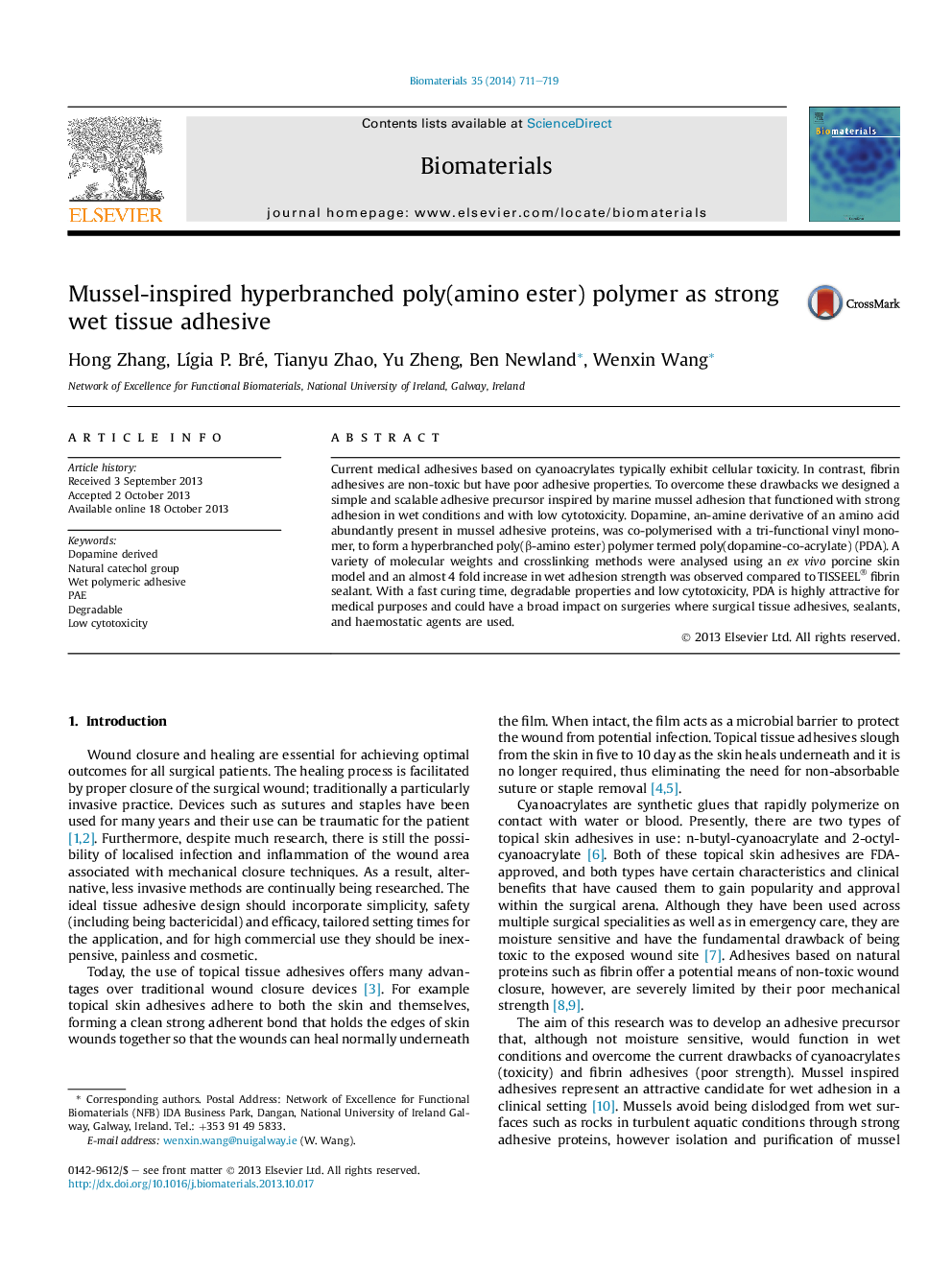| Article ID | Journal | Published Year | Pages | File Type |
|---|---|---|---|---|
| 10227780 | Biomaterials | 2014 | 9 Pages |
Abstract
Current medical adhesives based on cyanoacrylates typically exhibit cellular toxicity. In contrast, fibrin adhesives are non-toxic but have poor adhesive properties. To overcome these drawbacks we designed a simple and scalable adhesive precursor inspired by marine mussel adhesion that functioned with strong adhesion in wet conditions and with low cytotoxicity. Dopamine, an-amine derivative of an amino acid abundantly present in mussel adhesive proteins, was co-polymerised with a tri-functional vinyl monomer, to form a hyperbranched poly(β-amino ester) polymer termed poly(dopamine-co-acrylate) (PDA). A variety of molecular weights and crosslinking methods were analysed using an ex vivo porcine skin model and an almost 4 fold increase in wet adhesion strength was observed compared to TISSEEL® fibrin sealant. With a fast curing time, degradable properties and low cytotoxicity, PDA is highly attractive for medical purposes and could have a broad impact on surgeries where surgical tissue adhesives, sealants, and haemostatic agents are used.
Keywords
Related Topics
Physical Sciences and Engineering
Chemical Engineering
Bioengineering
Authors
Hong Zhang, LÃgia P. Bré, Tianyu Zhao, Yu Zheng, Ben Newland, Wenxin Wang,
